Are you interested in learning the essential elements for healthy plant growth? Look no further than the world of cannabis nutrients.
Yes, you heard that right – we’re talking about the key ingredients that can help your cannabis plants thrive and flourish. Whether you’re a seasoned grower or just starting out, understanding the importance of these nutrients is crucial to achieving optimal results.
In this article, we will delve into the fascinating world of cannabis nutrients, exploring the role of macronutrients and the significance of micronutrients.
We’ll also discuss the delicate balance of pH levels and how it affects your plants’ ability to absorb the nutrients they need.
Furthermore, we’ll guide you in choosing the right fertilizers and offer insights into proper nutrient management techniques.
So, grab your gardening gloves and discover the secrets to healthy cannabis plant growth!
Key Takeaways
- Macronutrients nitrogen, phosphorus, and potassium are essential for cannabis plant growth.
- Micronutrients like iron, zinc, manganese, copper, boron, molybdenum, and nickel are important for healthy development.
- Maintaining pH balance is crucial for optimal nutrient uptake in cannabis plants.
- Proper nutrient management techniques such as monitoring pH levels, following a feeding schedule, avoiding overfeeding, and flushing regularly are necessary for healthy plant growth and high-quality buds.
Understanding the Role of Macronutrients
Now that we’ve covered the basics of cannabis nutrients let’s delve into the role of macronutrients, which are crucial for the healthy growth of cannabis plants.
Did you know that a deficiency in macronutrients can significantly reduce the yield of cannabis plants by up to 30%?
Macronutrients are the primary nutrients cannabis plants need in large quantities to grow and develop properly. These include nitrogen (N), phosphorus (P), and potassium (K), which are often referred to as NPK.
Nitrogen is essential for producing chlorophyll, which is responsible for photosynthesis, the process by which plants convert sunlight into energy.
Phosphorus plays a vital role in root development, flowering, and the production of essential oils and resins.
Potassium, on the other hand, helps regulate water and nutrient uptake, as well as improve the overall strength and resilience of the plant.
To ensure that your cannabis plants receive an adequate supply of macronutrients, it’s important to use a balanced nutrient solution that contains the right proportions of NPK.
Monitoring the nutrient levels in the soil or hydroponic solution is also crucial, as deficiencies or excesses can lead to stunted growth, nutrient lockouts, or nutrient burn.
By understanding the role of macronutrients and providing your cannabis plants with the necessary elements, you can ensure their healthy growth and maximize your yield.
Read our popular blog: Cannabis Legalization And Its Effect On Opioid Addiction
Exploring the Importance of Micronutrients
Exploring the importance of micronutrients reveals their crucial role in promoting robust development in plants.
While macronutrients are essential for plant growth, micronutrients are equally important in supporting various physiological processes. These micronutrients, also known as trace elements, are required in smaller quantities but are just as critical for the overall health and productivity of cannabis plants.
Iron is a key micronutrient which plays a vital role in chlorophyll production and photosynthesis. Without sufficient iron, plants may experience yellowing of leaves, known as chlorosis, and reduced growth.
Zinc is another micronutrient crucial for plant enzyme activity and hormone production. It aids in synthesizing auxins, which are responsible for cell elongation and root development. Deficiencies in zinc can lead to stunted growth and delayed flowering in cannabis plants.
Other essential micronutrients for cannabis growth include manganese, copper, boron, molybdenum, and nickel. Each of these elements has specific functions in plant metabolism and enzyme activity. For example, manganese synthesizes chlorophyll and the breakdown of carbohydrates, while copper is necessary for photosynthesis and the metabolism of proteins.
Boron is required for cell wall formation and calcium uptake, while molybdenum is vital for nitrogen fixation. Although needed in very small amounts, Nickel is involved in the metabolism of urea and nitrogen.
Navigating the pH Balance
Balancing pH levels is like finding the perfect harmony in a symphony of nourishment for thriving cannabis plants. Just like a conductor guides each instrument to play in sync, you must carefully adjust the pH levels to ensure your plants receive the optimal nutrients.
Here’s a breakdown of the key components involved in navigating the pH balance:
- pH Testing: Begin by regularly testing the pH levels of your soil or growing medium. This will give you a baseline to work with and help you understand the current state of your plant’s environment.
- Adjusting pH: Depending on your test results, you may need to adjust to bring the pH levels into the desired range. For cannabis plants, the ideal pH range is typically between 6.0 and 7.0.
- pH Up and pH Down: To raise or lower the pH levels, you can use pH up or pH down solutions. These products contain chemicals that can alter the acidity or alkalinity of the soil, allowing you to fine-tune the pH to meet your plants’ needs.
By carefully monitoring and adjusting the pH levels, you’ll ensure your plants receive the perfect harmony of nourishment they need to thrive.
Choosing the Right Fertilizers
Good luck if you think you can pick any old fertilizer and expect your plants to thrive. Choosing suitable fertilizers for cannabis plants is crucial for their health and productivity. Different fertilizers contain varying levels of essential nutrients necessary for plant growth. It’s important to understand the nutrient requirements of your plants and select fertilizers that provide these essential elements in the correct amounts.
To help you make an informed decision, here is a table outlining some common essential nutrients and their functions in cannabis plant growth:
| Nutrient | Function | Deficiency Symptoms |
|---|---|---|
| Nitrogen | Promotes leaf and stem growth | Yellowing of leaves, stunted growth |
| Phosphorus | Stimulates root development and flower production | Purple or reddish leaves, poor flowering |
| Potassium | Enhances overall plant health and disease resistance | Brown or yellow spots on leaves, weak stems |
| Calcium | Strengthens cell walls and prevents nutrient deficiencies | Leaf tip burn, reduced growth |
| Magnesium | Helps in the production of chlorophyll and enzyme activation | Interveinal chlorosis, leaf curling |
By understanding the role of each nutrient and being able to identify deficiency symptoms, you can choose the right fertilizers to address any nutrient imbalances and ensure optimal growth for your cannabis plants. Remember, healthy plants lead to bountiful harvests!
Implementing Proper Nutrient Management Techniques
Implementing proper nutrient management techniques is like providing a well-tailored diet for a flourishing garden. Just like you need a balanced and nutritious diet to thrive, your cannabis plants also require the right combination of essential elements to grow and produce healthy buds.
Here are some tips to help you manage the nutrients effectively:
- Monitor pH levels: pH levels play a crucial role in nutrient uptake. Regularly test the pH of your soil or growing medium and adjust it accordingly. For cannabis, the ideal pH range is between 6 and 7. By maintaining the proper pH, you can ensure that the nutrients are available to the plants in an easily absorbable form.
- Follow a feeding schedule: Creating and sticking to a feeding schedule can help you provide a consistent supply of nutrients to your cannabis plants. Different growth stages require different nutrient ratios, so it’s essential to understand the specific needs of your plants at each stage. Whether you prefer organic or synthetic nutrients, follow the manufacturer’s instructions and adjust the feeding schedule as needed.
- Avoid overfeeding: While providing your plants with the necessary nutrients is essential, overfeeding can be detrimental. Excessive nutrient levels can lead to nutrient burn, nutrient lockout, or other nutrient-related issues. Pay attention to your plants’ response and adjust the nutrient levels accordingly. Remember, it’s better to underfeed slightly than to overfeed.
- Flush regularly: Flushing your plants with plain water before harvesting can help remove any excess nutrients or salts from the growing medium. This process helps improve the flavor and quality of your buds. Flushing should be done a couple of weeks before harvest, allowing the plants to use any remaining nutrients and produce cleaner, smoother flowers.
Implementing proper nutrient management techniques is crucial for the overall health and productivity of your cannabis plants. By monitoring pH levels, following a feeding schedule, avoiding overfeeding, and flushing regularly, you can provide your plants with the balanced diet they need to thrive and produce high-quality buds.
Frequently Asked Questions
How often should I water my cannabis plants?
Water your cannabis plants every day, because who needs breaks, right? Overwatering is just a myth! Make sure to drown those roots and watch your plants struggle to survive. Happy gardening!
What are the signs of nutrient deficiency in cannabis plants?
Signs of nutrient deficiency in cannabis plants include yellowing or browning of leaves, stunted growth, and curling or wilting. These symptoms indicate a lack of essential elements needed for healthy plant growth.
Can I use household items as fertilizers for my cannabis plants?
Sure, you can use household items as fertilizers for your cannabis plants. Coffee grounds, eggshells, and banana peels are great options. They provide nutrients like nitrogen, phosphorus, and potassium, essential for healthy plant growth. Happy gardening!
Are there any natural alternatives to chemical fertilizers for cannabis plants?
Yes, there are natural alternatives to chemical fertilizers for cannabis plants. You can use organic matter like compost, worm castings, or bat guano to provide essential nutrients. These options are environmentally friendly and promote healthy plant growth.
What are the common mistakes to avoid when managing nutrients for cannabis plants?
When managing nutrients for cannabis plants, avoid common mistakes such as overfeeding or underfeeding, using incorrect nutrient ratios, neglecting pH levels, and not adjusting feeding schedules as the plant grows.
Hi there! I’m Ayesha, a writer who loves creating stories that connect with people. I enjoy learning about health and wellness and sharing what I find on my blogs at Leafy Mate. My blogs are like taking a trip through the newest discoveries and timeless wisdom about staying healthy and feeling good. Join me on this adventure, where I explore and share simple ways to live a better, more nourishing life.

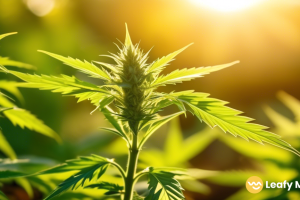
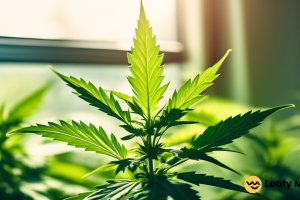
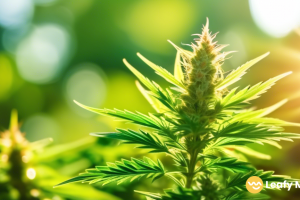




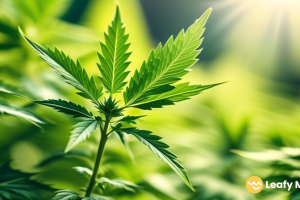

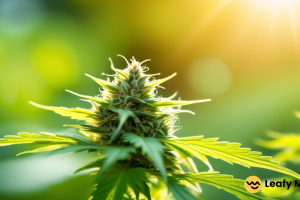
Leave a Reply